Women seeking discount plastic surgery paid with their lives at clinics opened by felons
MIAMI – One man pleaded guilty to bank fraud. One was convicted of grand theft in a real estate scam. Two others admitted to elaborate Medicare schemes that siphoned millions from taxpayers.
In Florida, one of the nation’s top destinations for plastic surgery, a felony conviction can bar someone from operating a massage parlor or a pawn shop.
But not from running a cosmetic surgery clinic.
Nearly a dozen miles from the iconic beaches of South Florida, the four convicted felons ran facilities that became assembly lines for patients from across the country seeking the latest body sculpting procedures at discount prices.
And at those businesses, at least 13 women have died after surgeries. Nearly a dozen others were hospitalized with critical injuries, including punctured internal organs.
The state health department was alerted to the casualties. Government inspectors cited the clinics for serious violations, including dirty operating rooms and sales agents with no medical licenses determining the appropriate surgeries for patients.
Plastic surgery experts warned lawmakers to take control of the centers by screening owners and boosting regulation.
Four times, legislators tried. Four times they failed to muster enough support to change the law, even as the toll at the four businesses continued to rise: two dead in 2013, no action; another dead in 2015, no action; three dead in 2017, still no action.
"It's absolutely incredible," said Dr. Grant Stevens, a clinical professor of surgery and president of the American Society for Aesthetic Plastic Surgery. "Government is supposed to protect the health and welfare of its citizens."
At Seduction by Jardon, a 31-year-old woman went into kidney failure and nearly bled to death as she languished in a back room for six hours before her mother found her, hospital records and a state complaint show.
At New Life Plastic Surgery and Strax Rejuvenation, women died after their doctors injected fat into their muscles in a popular procedure known as the Brazilian butt lift. Medical experts who reviewed autopsies for USA TODAY said the fat was injected too deep and collected in their lungs, killing them.
One woman, who left Spectrum Aesthetics with a stray surgical sponge sewn into her abdomen, said she would have canceled her tummy tuck if she had known the operators had been convicted of defrauding Medicare of $1 million.
A manager of the clinic, Evelyn Parrado, was granted permission to run the cosmetic surgery center during the day while spending her nights under house arrest on the felony charge.
"Why is that allowed to be legal?" said Porche Campbell, the 40-year-old mother who needed emergency surgery to take out the sponge and, later, reconstructive surgery to get rid of the scar. "How can I trust them to keep me safe?"
Most of the women who died – 10 in all – were African-American or Hispanic, ethnic groups frequently targeted in the clinics’ advertising campaigns.
Representatives of three of the clinics – Spectrum, Strax and New Life – told USA TODAY that criminal histories have no bearing on the way the centers are run and that their facilities meet all state safety requirements to carry out procedures.
Jeffry Davis, a co-founder of Strax Rejuvenation, pointed out that his convictions on federal bank fraud and tax evasion were nearly a quarter-century ago, in 1995.

"I personally don't see how that would affect anybody's feeling of my integrity today," he said.
The president of Seduction declined to answer written questions about the business or the involvement of her husband, who was convicted in a mortgage fraud case.
The role of clinic operators varies greatly but can include hiring doctors, ordering drugs, scheduling surgeries, and overseeing risk management to cut down on deaths and injuries.
Health care experts say a criminal history – especially a conviction for financial crimes – is among the most important factors in deciding who should be allowed to run a center.
Clinic operators are expected to follow a litany of health regulations that require them to put safety over profit, said Michael Gonzalez, an Ohio lawyer who advises medical institutions on hiring practices. With felons, he said, “you have people with a propensity" to break the law.
Florida legislators in Tallahassee are back this year with another proposal that would give the state the power for the first time to shut down clinics and impose other punishments.
The bill was introduced by Sen. Anitere Flores in February, days after a USA TODAY and Naples Daily News investigation revealed dangerous practices in a Miami-area plastic surgery business where eight women died after operations and nearly a dozen were hospitalized.
RELATED: This business helped transform Miami into a national plastic surgery destination. Eight women died.
"People are coming here from all over the country for what should have been simple procedures, and they're dying,” said Flores, a Republican whose district includes the state’s cosmetic surgery hub in the suburbs of Miami. “We don't want to be known as a place where people come to die."
The proposal has gone further than previous bills, clearing three Senate committees and two House panels – all unanimously. Yet critics continue to question whether a legislature historically opposed to regulation will support the crackdown.
They point out that even as lawmakers turned down past attempts at stricter oversight, they approved millions of dollars to promote Florida as a destination for medical tourism, with plastic surgery as one of its big draws. In 2014, the state allocated the first $5 million to that marketing campaign.
Nicola Mason, a Maryland woman with deep, jagged scars along her lower stomach that she blames on an operation at Spectrum in 2015, wonders why it has taken so long for the state to act.
“It’s outrageous,” she said. “They should have thought about this six or seven deaths ago.”
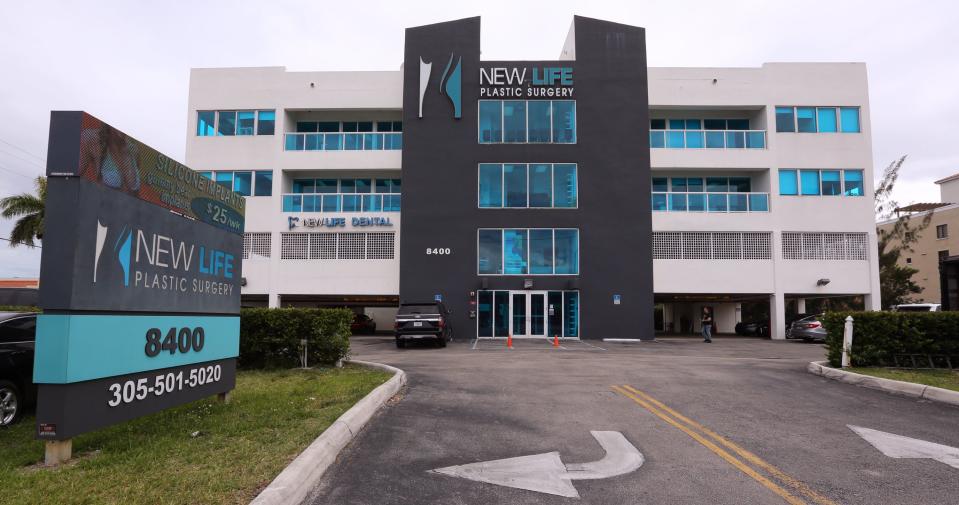
Packed waiting rooms, busy surgical suites
At Strax Rejuvenation near Fort Lauderdale, surgeries turned deadly nearly every year.
A 64-year-old woman was given lethal doses of opioids by her doctor during a face lift in 2008, a state malpractice probe found. Another woman died three years later after a neck lift during which her doctor gave her a dangerous mix of sedatives and then failed to monitor her, state investigators reported.
Eight deaths in eight years, according to autopsy and state records. None of them made a difference.
Florida legislators passed laws decades ago that allowed the state to discipline doctors who owned clinics and practiced there. They never envisioned that private investors would jump into the industry, too.
That loophole means people without medical degrees can own clinics that break state laws with little chance of being shut down, even if they leave patients dead.
"There is a gap," said Christopher Nuland, a health care lawyer who helped write the first legislation in 2000. "No one anticipated that non-physicians would take over clinics and be largely immune to these good laws."
In the end, the operators who benefited most from the discount clinics faced no repercussions.
One of those clinics was Strax, which opened in 2004 and became the first of the large, high-volume clinics that can create unique risks for patients.
By paying doctors strictly on commission and offering cut-rate prices, the clinics often operate with packed waiting rooms and busy surgical suites, and at times leave patients to fend for themselves after procedures.
State inspectors have cited Strax's two clinics more than 45 times in the past six years for violations that included dirty operating areas, cracked and worn equipment, and no records to show doctors examined patients to clear them for surgeries.
Davis, Strax's manager, defends the model. He says the physicians control how many surgeries they do each day and the facility's medical director makes sure patients are safe for their procedures.
“The Department of Health, if there was something (wrong), would be sending correspondence,” Davis said.
But records show about half the doctors who have worked at Strax – 11 total – have been disciplined by medical boards during their careers for charges that included unethical conduct and malpractice in death and injury cases.
After facing 18 negligence and malpractice claims by patients – with awards and settlements in eight cases totaling $1.5 million – Strax's parent company filed for bankruptcy in 2013.
Through all of it, the clinic never shut its doors.

By 2014, state Sen. Eleanor Sobel began meeting with the Florida Society of Plastic Surgeons, which had complained about Strax and similar clinics cropping up in South Florida.
Sobel, a Democrat, proposed a bill to allow the state to shutter the worst offenders and screen owners for criminal backgrounds, giving Florida the option of barring ex-offenders from running clinics.
To Sobel, the legislation "was all about saving lives."
The Senate backed the legislation, but it failed to win support in a crucial House subcommittee. Jason Brodeur, former GOP lawmaker and chairman of the panel, told USA TODAY he didn't recall the bill or why it failed.
"It could be that it was more (pertinent) to Broward or Miami-Dade than it was to the rest of the state," Brodeur said.
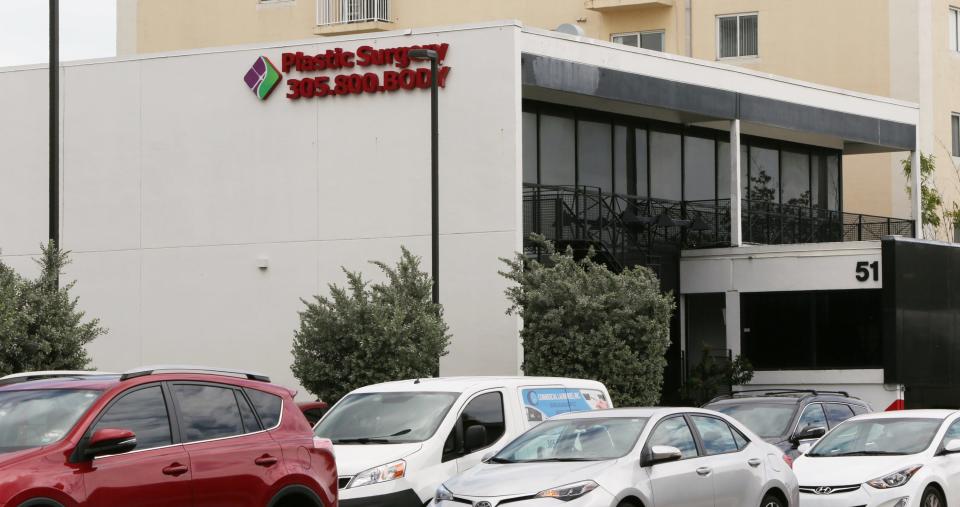
That same year, state agents inspected Strax and cited it for serious violations, including medical records that were incomplete – nonexistent in some cases – and staff members failing to show they regularly monitored patients under anesthesia.
The following year, Sobel resurrected the bill with one of the Senate’s most influential GOP leaders, Don Gaetz, as co-sponsor. In a repeat of 2014, the same subcommittee killed it.
Not long after, a series of critical medical mistakes in another felon-run clinic would leave several women hospitalized, one in a coma for 28 days.
Fueled by star power
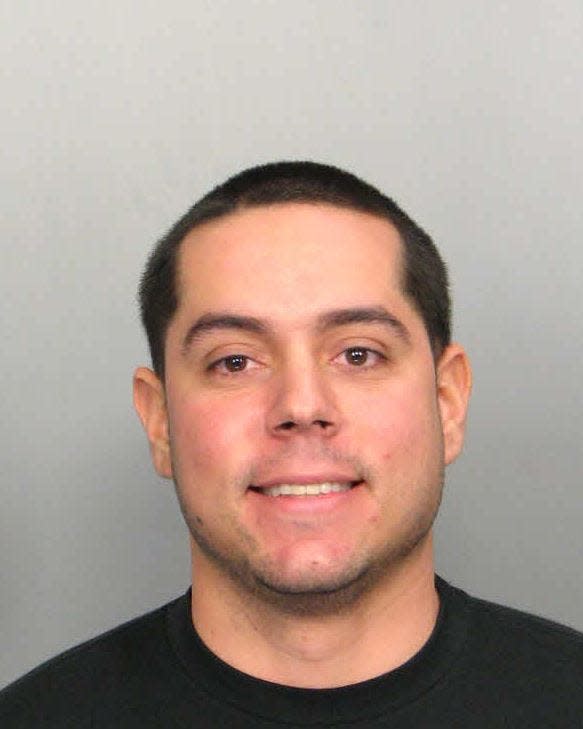
Driven by social media ad blitzes and telemarketers, the clinics continued to grow. They rode the popularity of a new body-sculpting procedure, promoted by rap singers and reality show stars like Kim Kardashian: the Brazilian butt lift.
One of the facilities that capitalized on the trend was Spectrum Aesthetics, founded by Juan Hernandez and Evelyn Parrado in 2012, two years before Florida's first attempt to screen owners.
The duo used to run a pharmacy in Miami's Little Havana and took part in a scheme to falsely bill Medicare $1.2 million for drugs that were not legitimately prescribed and then keep the money, prosecutors charged.
The two partners closed their drug store in 2013 and moved some proceeds from the business into their cosmetic surgery center, one of their lawyers disclosed in court.
Before Hernandez began serving a 15-month prison term, he was granted permission to keep running Spectrum while on supervised release. His lawyer told the judge it was a regulated business “staffed by board-certified plastic surgeons."
Records show that was not the case.
The clinic had hired several doctors not certified in plastic surgery, including Osakatukei Omulepu, who had failed his board exams three times.
In 2015, Omulepu carried out operations at the clinic that led to devastating injuries. On one day in May, Omulepu punctured a woman’s liver five times and perforated the small intestine of another patient in several places while performing butt lifts.
Donna McRae, 35, a mother from Michigan, was rushed to the hospital in critical condition, and Nyosha Fowler, 34, a mother of two from Alabama, was in a coma for nearly a month before regaining consciousness, state malpractice records and interviews show.
"It's the most excruciating pain I've ever been through," said McRae, a licensed practical nurse. "I had to learn to walk all over again."
Despite the state launching a malpractice investigation and a local hospital stripping Omulepu of his privileges, Spectrum continued to allow him to carry out surgeries for months, state health records show.
In September, Nicola Mason, the 46-year-old Maryland woman, alleged in a complaint to the health department that Omulepu performed the wrong surgery on her – a tummy tuck instead of a butt lift – leaving her with unsightly scars.
Parrado, the company’s manager, did not respond to questions submitted to the clinic's attorney. Hernandez declined to comment, saying he was not connected to the clinic anymore.
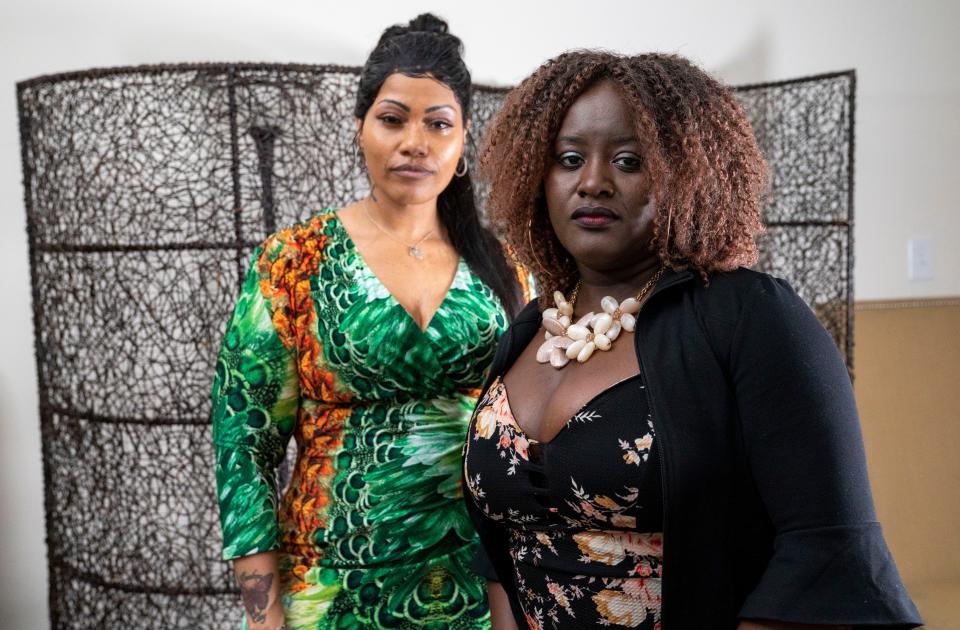
Instead, the clinic provided a prepared statement, saying it has been “delivering the highest standards of care to thousands of patients” for many years and the doctors connected to the injuries are no longer working for the facility.
Omulepu told USA TODAY the two women who suffered perforated organs were the "only serious complications of my career."
However, two years later, while working at a competing clinic, Seduction Cosmetic Center, a patient died after surgery by Omulepu. The cause of her death: fat embolism.
Medical experts say the only way such an embolism occurs is when a doctor injects the fat into areas they are warned to avoid: the deep gluteal muscles. Omulepu says the surgery brings high risks and he regrets what happened in the operating room that day.
“Is it tragic? Absolutely,” he said. “Do I wish it didn’t happen? Absolutely.”
SUBSCRIBE Support local journalism
As to Mason’s claim that he performed the wrong surgery, Omulepu flatly denied the allegation, saying he would never do a procedure without the patient’s consent. "That's assault and battery," he said.
He said Mason initially signed up for a butt lift, but when he examined her, he determined she was not a good candidate, and they agreed she would get a tummy tuck instead, his surgery records show.
At the urging of the Florida Society of Plastic Surgeons, Sobel stepped forward with yet another bill in 2016, asking lawmakers to require background checks on owners. This time the bill was especially harsh on felony offenders: They would be automatically banned.
That proposal not only failed to draw a House sponsor, but it died in Sobel’s own health committee.
“Over-regulation, they tell people,” she said. "They use that as an excuse even when people die."
Ultimately, the medical board revoked Omulepu’s license in 2017 over the cases of the punctured organs. He fought the charges in a state appeals court and temporarily won back the right to practice.
He returned to work and five weeks later performed the surgery at Seduction that led to the patients death by fat embolism. He lost his license again and is no longer practicing.
Help us investigate cosmetic surgery safety issues
If you or someone you know suffered injuries or death during cosmetic surgery procedures, we would like to know what happened. We will not publish personal information unless we contact you first to ask for permission to share it.
Kidney failure and shock
The fatal surgery at Seduction drew the attention of the Florida health department. State agents reviewed the operation, and the medical examiner investigated the death.
But what caught Crystal Call’s eye was the company's elegant website and its promises of life-changing surgery at low prices.
Call, then 31, worked for the New York State Bridge Authority. She knew a butt lift would be far more expensive if performed by a board-certified surgeon closer to home. What she didn’t know was the man who managed the clinic had been charged in a mortgage scam years earlier.
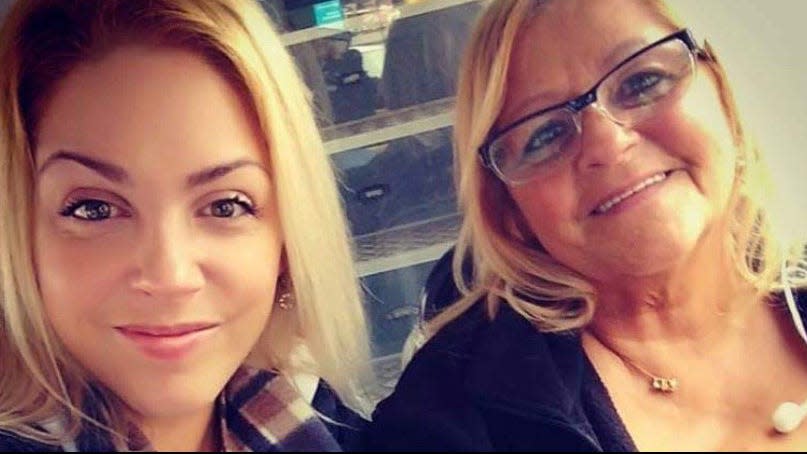
Rayner Aguiar, 36, took over the center in Aventura after he was convicted of falsifying paperwork to inflate the value of a home in 2008. The clinic is one of four run by Seduction, where Aguiar’s wife, Gretel Jardon, is president of the family business.
Aguiar did not respond to interview requests. Jardon would say only that clinics run by doctors are more dangerous but offered no proof.
Call said she became concerned the day she arrived for her examination to find a crowded waiting room, with patients walking through the lobby in their gowns after surgery.
"It was crazy to see the amount of people coming out in one day," she said.
Then Call said she learned from her doctor that she would be among 11 surgeries the next day. But "he said, 'Don't worry. You're the first one in,' '' she recalled.
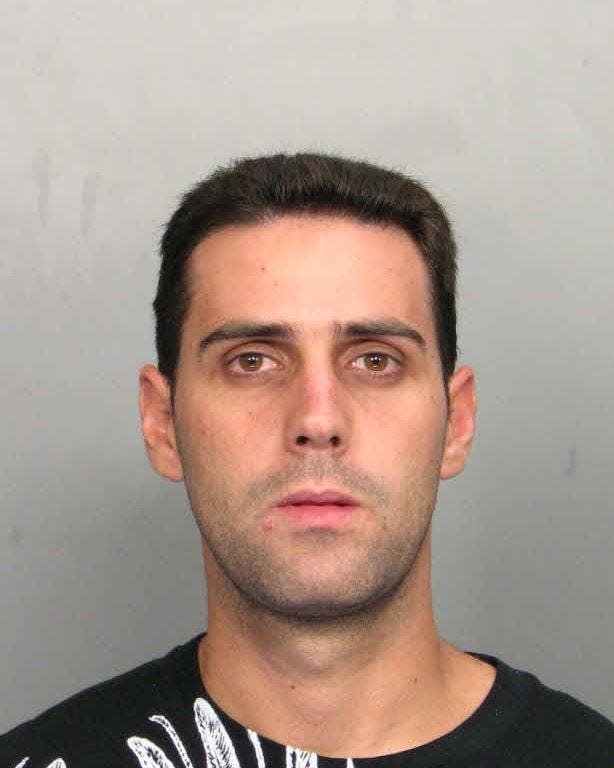
With her mother outside in the waiting room, Call went into surgery at about 9 a.m. Hours later, Call’s mother got worried.
"I'm waiting and waiting," Maria Basham said.
By evening, Basham asked to see her daughter. When a staff member said she would have to continue to wait, Basham said she rushed to the rear of the clinic and started "banging on doors."
"They had a lock on the door in the recovery (room)," she said.
Basham remembers dialing 911 and then being allowed into a back room, where she found Call in a bed, pale and unresponsive. A former nursing student, she said she was stunned to see her daughter's blood pressure had plummeted.
"In an hour, she would have been dead," she said.
An ambulance rushed Call to Aventura Hospital. They found her in the throes of kidney failure and shock, hospital records state, and in need of an emergency transfusion.
Over the next several days, she received steady doses of painkillers and antibiotics.
After returning to New York, Call was treated for numbness and other complications that have consumed her life ever since, she said. When she returned to her job four weeks later, she was assigned to desk duty at the Bridge Authority.

Call said she has difficulty walking longer than five minutes and can no longer run. She said her stomach is covered with deep and unsightly scars from the surgery. After two years of treatments, she said she owes about $156,000 in medical bills.
“It’s ruined my life right now,” she said.
Call filed a complaint with the state but said she has not heard back in at least a year. She said calling the clinic seemed pointless.
"They know the risks and they know they're not going to face any consequences," she said. "It's sad."
Legislative fix on fast track
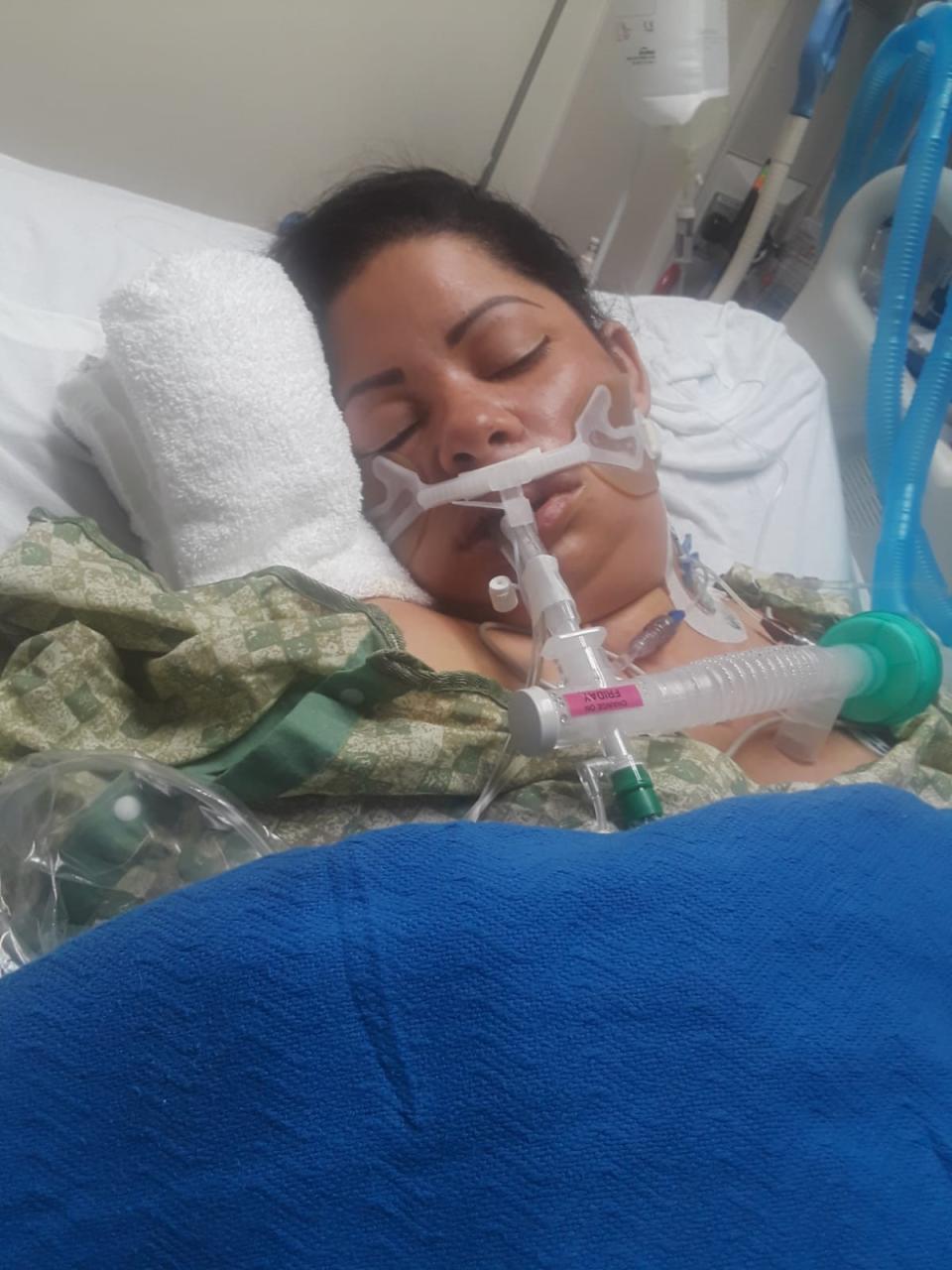
Members of the powerful Senate health committee considering the most recent reform proposal last month sat quietly in the darkness as a video played on a large screen in the hearing room.
With tears in her eyes, a middle-aged mother recalled the daughter who wanted to be a nursing assistant. Instead, Adianet Galván died last year of a fat embolism after a Brazilian butt lift at New Life Plastic Surgery, autopsy records show.
"I never thought my daughter would come to this country and die at the age of 30," said Arelys Gonzalez, a native of Cuba.
For the fifth time, the Legislature has taken up a bill to rein in clinics. Sen. Flores is taking no chances, making sure her colleagues understand the stakes.
What wasn’t disclosed to the lawmakers at the video session was that the man who founded New Life was another felon: Santiago Borges, who years earlier had concocted a $70 million Medicare scam.
The 54-year-old businessman drove a Mercedes-Benz 500 and a BMW 7 series, collected Rolex GMT-Master watches and owned boats in Mexico and Key Biscayne. When he was arrested, he used the proceeds from his cosmetic surgery clinic to pay his bail, court records show.
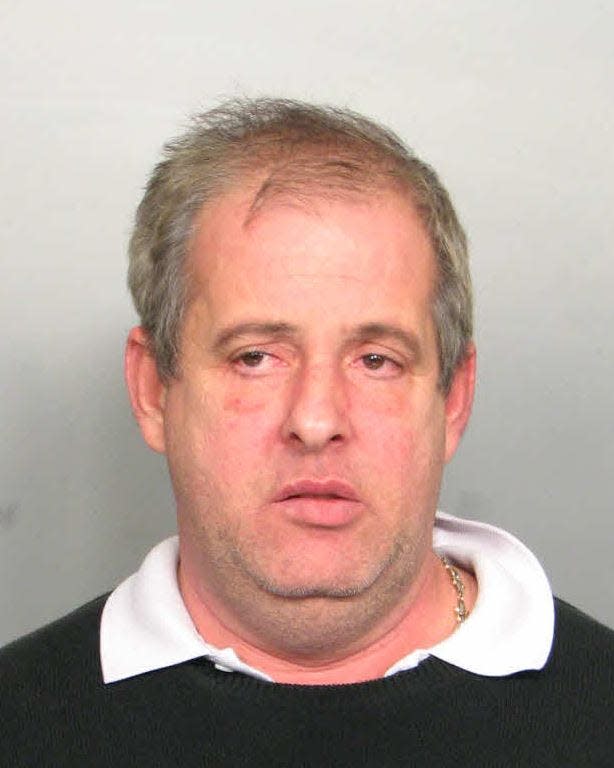
After he was sentenced in 2015 to a term later reduced to eight years, his daughter, Claudia, became an owner of the clinic. In a written statement to USA TODAY, Claudia Borges and co-owner, Daniel Gonzalez, said that Santiago Borges no longer oversees the clinic.
They said the facility "puts patient care and safety first and is continually working to improve patient care." It supports any regulations "that would improve quality of care and patient safety."
Since 2014, the clinic has failed to meet safety standards in every annual state inspection. Among the violations: missing medical records and patients paying for surgeries before they see a doctor. Plans of correction were filed by the clinic each year.
Flores, who learned about the existence of former criminals in the industry from USA TODAY earlier this month, said she hoped the revelations would help her persuade fellow lawmakers to approve her proposal.
Veterans of the Legislature say even deaths may not be enough. For years, the state’s political body has resisted new regulations in health care facilities, even after deaths and injuries in assisted-living facilities.
When a House member stepped forward last year to propose yet another bill to screen operators of all surgery offices – the fourth attempt – it didn’t survive its first committee.
Already, the bill being considered has been softened. Lawmakers removed a mandate that the state screen all plastic surgery center owners for criminal records because of concerns over the cost of carrying out the checks.
Stevens, the president of the American Society for Aesthetic Plastic Surgery, said he was perplexed at the past legislative failures given the number of deaths and injuries in the four facilities.
“It’s unconscionable,” said Stevens, a former member of the California Medical Board's medical review committee. "How the heck can you leave the lives of patients to a medical clinic that is run by convicted felons?”
If lawmakers “fail to step in and help” again, he added, “then, I’m sorry, they have the blood on their collective hands."
USA TODAY Network reporter Melanie Payne of the News-Press of Fort Myers contributed to this report.
This article originally appeared on USA TODAY: Felons opened plastic surgery businesses where women died

